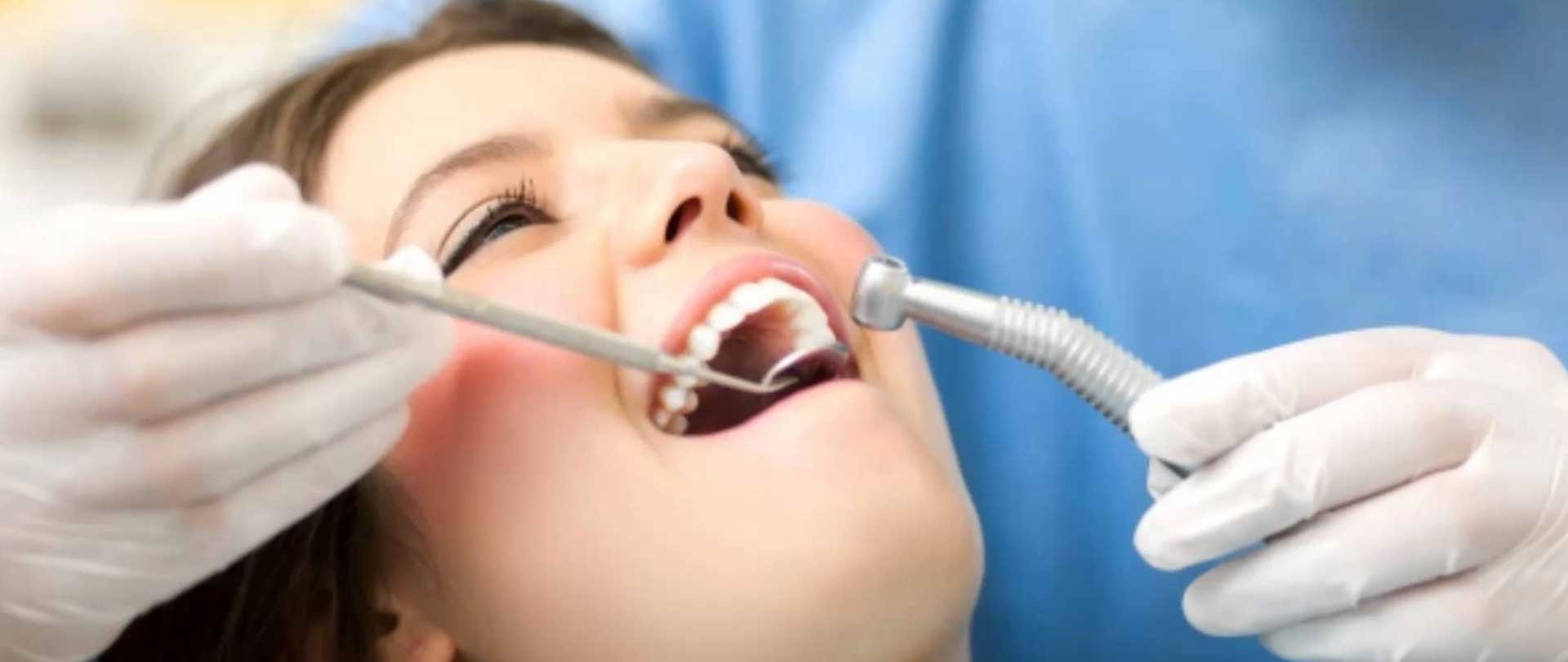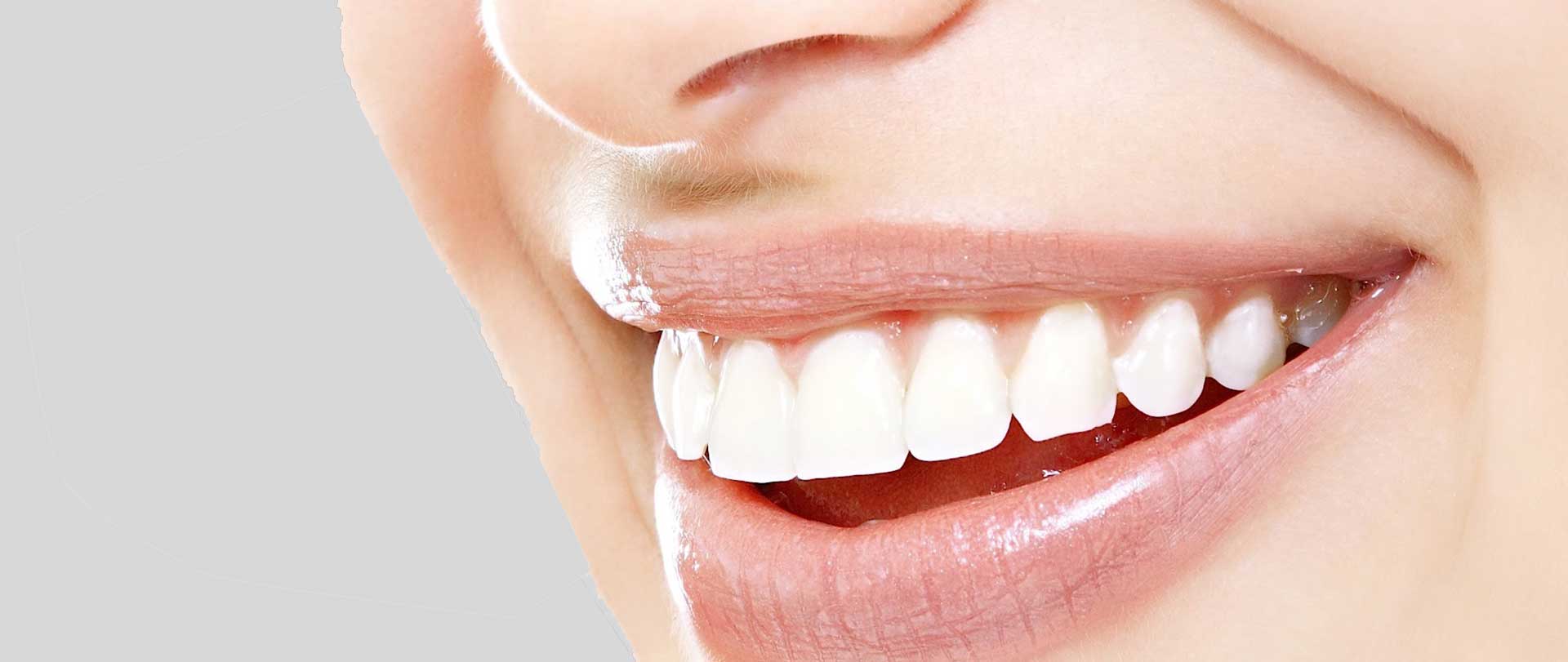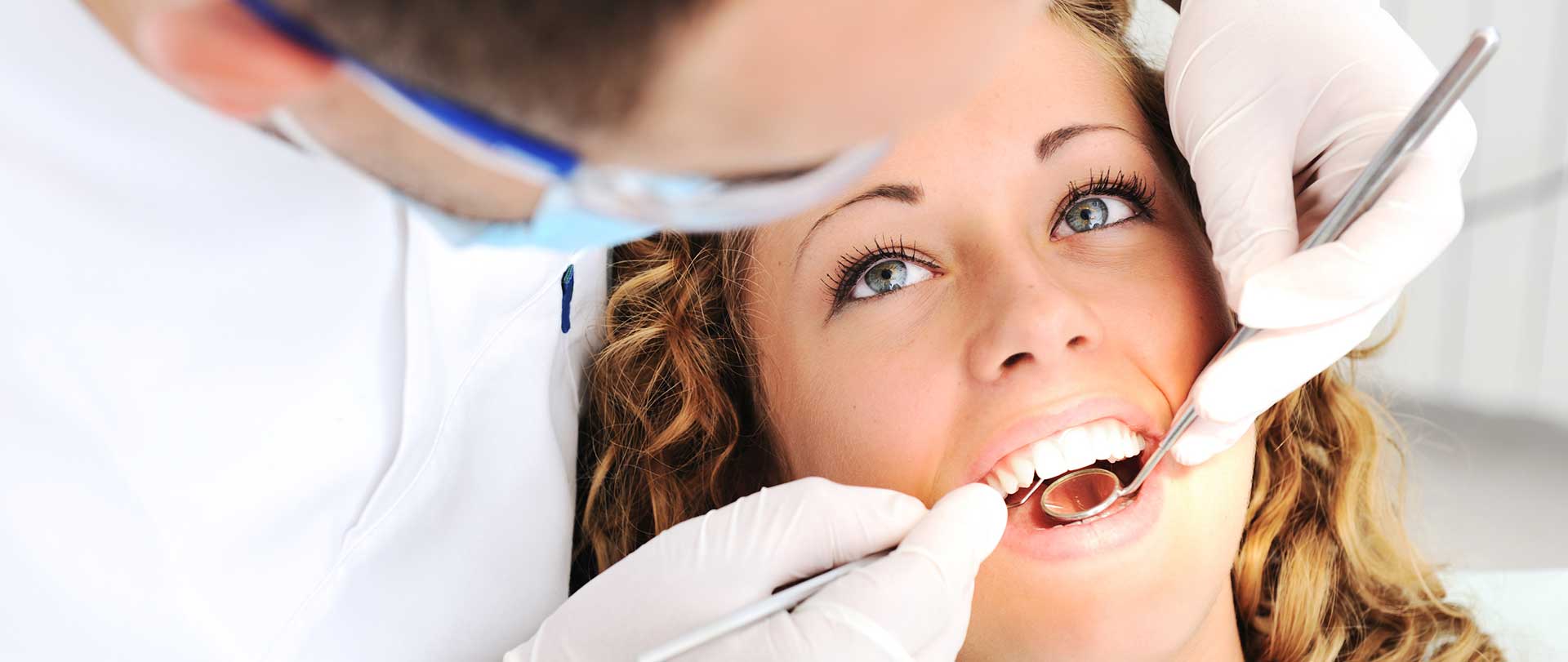Welcome to the Institute of Sanjeevani dental care Walk in for Dental Implant…Leave with a smile!!
We specialize in placing, restoring and maintenance of dental implant supported crowns, bridges and implant dentures.
Today the focus of modern dentistry is to preserve a damaged tooth whenever possible, however, tooth loss can still result from injury, periodontal disease or tooth decay. Previously the options available to restore such gaps created by missing teeth were limited to dental crowns and bridges.Thanks to modern day technology, the introduction of Dental Implants has revolutionised the field of dentistry.
Dr Abhishek Goyal is a sought after implant dentist, with more than 5 years of experience in the field of Implant Dentistry and Esthetic Dentistry. A long term success rate of over 99% speaks for itself, that too in difficult cases involving extensive bone and soft tissue grafting. Our vast experience and unparallel expertise provides all our patients the peace of mind of being in the best hands.
What are Dental Implants?
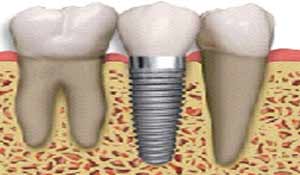
The implants themselves are tiny titanium posts, which are inserted into the jawbone where teeth are missing. These metal anchors act as tooth root substitutes. They are surgically placed into the jawbone. The bone bonds with the titanium, creating a strong foundation for artificial teeth. Small posts are then attached to the implant, which protrude through the gums. These posts provide stable anchors for artificial replacement teeth.
It is available in various sizes (both width and height) for different clinical situations. They can serve as anchors for crowns, bridges, or full and/or partial dentures depending on individual need.
What are the Benefits of Implants?
- Dental Implants may be used to replace one or more missing teeth. In case of completely edentulous patients, implants may be used to fix the dentures to the underlying bone. Alternately, implants may be used to provide fixed teeth to edentulous patients without the use of dentures. Needless to say, an implant offers several advantages over conventional treatment options.
- Implant supported teeth are more comfortable than conventional dentures because there is no slipping or movement, because the implants are fixed they feel and function like natural teeth. This eliminates some of the key worries of denture wearers and improves self-confidence.
- Dental implants are an alternative to conventional bridgework. They eliminate the need to prepare healthy teeth and do not place additional loads on the teeth supporting the bridge.
- Root replacement with dental implants is one of the only ways to prevent bone shrinkage after a tooth root is extracted, thereby maintaining the shape and structure of the jaw stable.
Treatment Options with Dental Implants
- The best remedy in situations where there are no posterior teeth or where there are no healthy natural teeth available for fixed bridge support
- Patient can chew better because the bridges are tightly secured.
- Gives better strength and stability than dentures
- Save adjacent teeth. Prevents bone loss and prevents existing teeth from drifting into surrounding space of the missing teeth
- Requires less maintenance than implant supported overdentures.
There is a choice in the type of teeth (crowns) that can be placed- metal, metal ceramic or all ceramic.
Installing Implants with Fixed Bridge
- Before the procedure
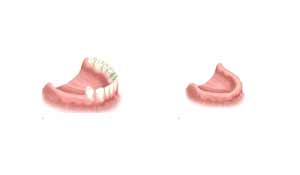
- Implant Placement: First, the implants are installed. With conventional procedure, implants are left about 2-6 months to integrate with the jawbone before the next step is taken. If immediate loaded implants can be done, a temporary bridge may be placed at the same time.
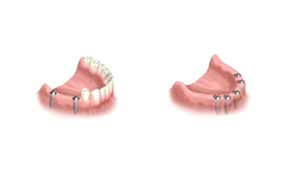
- Attaching the bridge to the implants
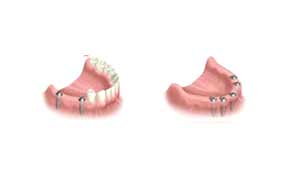
- End result: The new bridge will handle all the pressure that your strong, natural back teeth did. You will have a stable and secure solution that allows you to eat what you want.
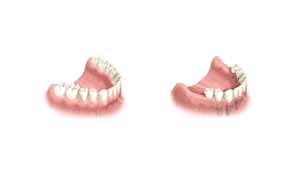
Implants supported Overdentures
- Conventional Denture is semi-fixed to the underlying bone with implants. So renewed confidence and improved quality of life as well
- It is possible to use existing dentures if they fit well.
- The removable overdentures are securely clipped on top of the implant giving the strength and stability that allows you to better than with conventional dentures
- Normally remains fixed but can be removed by the patient
- Simple and relatively Inexpensive (compared to implant supported bridges)
Installing Full Arch Implants with Overdentures
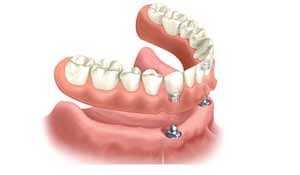
The course of treatment described here is one of several options available. Consult us to find out what the best solution is for you, given your specific condition.
Dental Implant Procedure
Conventional Dental Implants
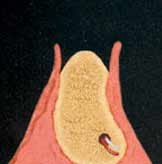
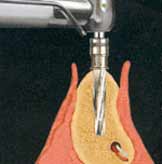
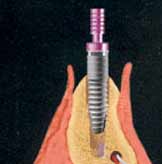

Assessment and Planning
- At initial consultation, all possible alternatives are considered and the feasibility of implant treatment is assessed.
- Should you wish to proceed with implant treatment, a full and detailed assessment is done which involve the taking of impressions, x-rays and in some cases CT scans. This completes the diagnostic planning and treatment details including sequence of treatment, costs and possible complications are discussed with the patient.
Implant Placement
This is generally a simple procedure that is performed under sterile conditions in a dental surgery using local anesthesia. If required, bone saved from the drilling procedure and some artificial bone may be used augment the contour of the ridge and gum around the implant.
Healing Process - Osseointegration
- The implant is left to integrate with the jaw bone for a period of 2 to 6 months
- The sutures are typically removed seven to fourteen days after surgery
- The patients own denture or in some cases a simple adhesive bridge can be worn during the healing phase.
The Restorative Phase –
- When the gum tissue is ready, a special abutment or metal bar/ball is attached to the implant
- Ifcrowns or bridges are opted, an abutment is placed and this provides the support for the new crown or bridge.
- If overdentures are opted, the metal bar/ball is placed and a clip is used to securely retain the set of newoverdentures
- After impressions are taken, thecrown/bridge or overdenture is made and fixed in place.
Maintenance
- Patients are demonstrated brushing and flossing around the implant
- Patient is scheduled on recall program to monitor the health of gums, implant integrity and bone levels and to perform professional prophylaxis if required
Dental Implants

Dental implants provide a strong foundation for permanent or removable prosthesis (replacement teeth) that are made to match your natural teeth. They are manufactured from biologically neutral pure Titanium or titanium alloys,that is accepted by the human body and these implants fuse with the jawbone to form a secure foundation for tooth replacement.
Types of Dental implants
There are two basic types of implants available at our dental clinic. In certain cases, conventional or immediate implants may be followed by immediate loading of crowns and bridges known as immediate loaded implants.
Conventional Implants
- Conventional implants are applicable to almost anyone who is looking to replace one, multiple, all missing teeth with a permanent restoration solution.
- Conventional implants are done in 2 stages normally in 2 trips about 3 to 6 months apart
- Conventional implants may be done for most types of bone conditions. If there is moderate or severe jaw bone loss, bone grafting may be recommended prior to dental implantation.
Immediate Implants
- mmediate implants are also known as one day or same day implants.
- This is the case whereby dental implants is placed during the same time after teeth are extracted. Crowns, bridge, dentures may or may not be placed on during same trip depending on whether immediate loaded implants may be done.
- Immediate implants are normally recommended only for cases with good jaw bone conditions.
Immediate Loaded Implants
- Immediate loaded implants are whereby permanent or temporary crowns,bridges or dentures are placed during the same trip when the dental implant posts is embedded in jaws.
- Immediate loaded implants may follow after conventional implants or immediate implants
- Immediate loaded implants are normally recommended only for cases with good jawbone conditions.
The type of dental implants selected will be dependent on the patients' specific needs and general dental condition. A panoramic x-ray and/or CT scan is usually required to evaluate the amount of bone, determine the space available and for a thorough examination to diagnosing the options best suited for each case.
There are a variety of dental implant systems available on the market. The two most popular systems are the Nobel Biocare implant systems & Alpha Bio Implant system. Both companies have had long-standing histories in the field of producing dental implants and have their own ranges of lines.
Benefits of Dental implants
BETTER S.E.L.F. (Speak better, Eat better, Look better , Feel better)
- Improved self-esteem and increased quality of life
- No need to trim the adjacent teeth to form the conventional bridge
- Improves speech as compared to having dentures
- Improved comfort relative to removable dentures
- Prevent further loss of teeth and bone support
- Improved and younger, natural appearance
- Improved oral health
- Durability. Implants are very durable and have expected life for a long number of years replacement for lost tooth
- No slipping, sliding clicking dentures or worrying about your dentures popping out in embarrassing situations
Dental implants Restoration Types
Single Tooth Missing
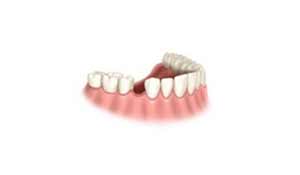
The single tooth implant restoration consists of three parts. Namely, the implant post which replaces the tooth root, the abutment which will support the crown and the prosthetic crown itself. The crown is either cemented onto the abutment or held in place with a screw
A single tooth implant with crown is one of the best permanent restorations. And more importantly, it does not require cutting your adjacent healthy teeth for bridging.
Multiple Teeth Missing
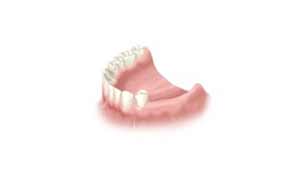
If multiple teeth are missing in different parts of the mouth, several single tooth implants are good replacement restorations.
If multiple teeth are missing within the same region, several missing teeth can sometimes be replaced with fewer implants because dental implants are stronger than the natural tooth roots. This solution includes having implant fixed bridges done.
All Teeth Missing
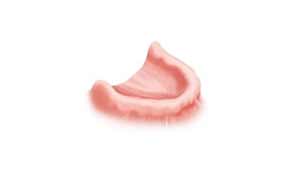
We strongly believe that all our patients deserve fixed teeth so we do not give any option of removable dentures supported on implants
When all teeth are missing or in a condition that all teeth need to be replaced, there is a need for full arch implant reconstructions
All-on-4 , All-on-6 or All-on 8
The fixed teeth options include
- having screw retained fixed hybrid dentures
- having screw retained fixed porcelain crowns/bridges.
Sanjeevani Experience
-
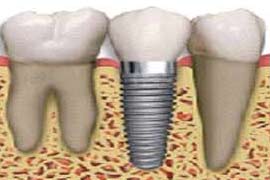
DENTAL IMPLANTS
We specialize in placing, restoring and maintenance of dental implant supported crowns, bridges and implant dentures...
Read More -
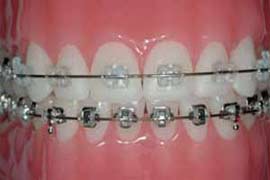
BRACES
Dental braces (also known as orthodontic braces, or braces) are devices used in orthodontics that align and straighten teeth and help to position them ...
Read More -

TECHNOLOGY
Sanjeevani Dental care modern clinics offer the very latest advantages in dental technology and equipment. Clove doctors are continually trained in the use...
Read More -

GUM TREATMENT
Sanjeevani Dental care offers world-class dental care in the most transparent and ethical manner possible. Patients are given information about ...
Read More -

DENTAL EXTRACTION
Dental extraction (also referred to as exodontia) is the removal of a tooth from the mouth...
Read More -

CROWN & BRIDGES
Sanjeevani Dental care continue to care for their patients, even after they’ve left the clinic. Recovering from dental treatment is not always pleasant...
Read More

